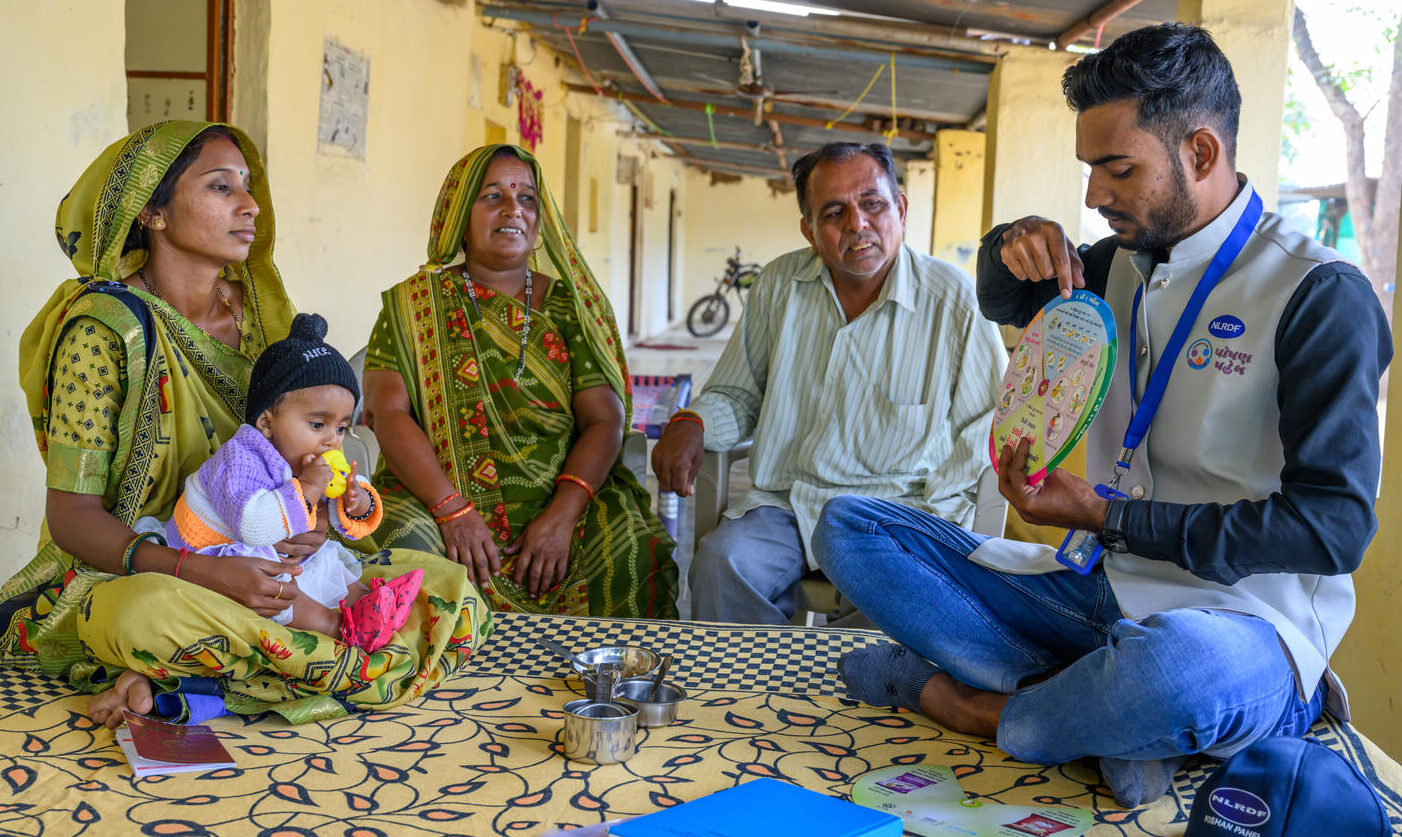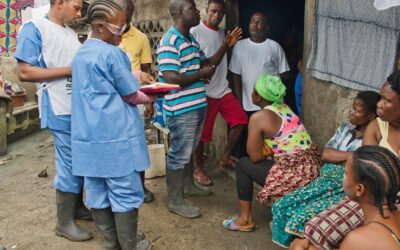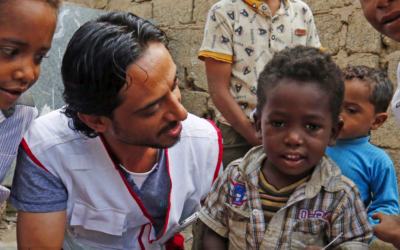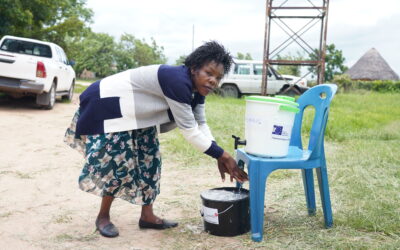An independent evaluation of the Collective Service was carried out between January and November 2023 and was jointly managed by the evaluation offices of IFRC, UNICEF and WHO. The purpose of the evaluation was to assess the Collective Service’s contribution to strengthening RCCE systems in the public health and humanitarian response to the COVID-19 pandemic, and to make suggestions and recommendations to the Service partners’ decision-makers on the future strategy, vision and coordination model.
The evaluation shed light on the role of risk communication and community engagement in public health emergencies, why it is important for organizations to work together in this area, and how this can best be achieved with regard to the Collective Service.
Access the evaluation brief, which highlights the methodology used to conduct the evaluation, introduces key findings and recommendations, and exposes the strategic options to determine the future level of ambition for the Collective Service.
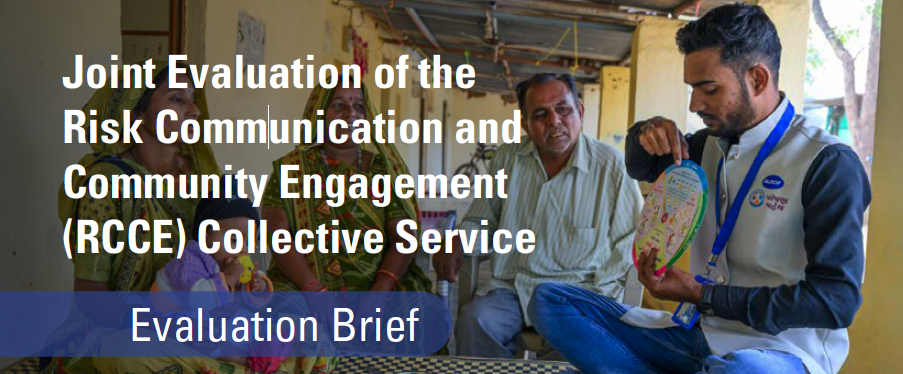
A dedicated information session on the external evaluation outcomes is scheduled for Tuesday 27 February. Join us for a webinar packed with insights and discussion on how this collaboration has impacted public health coordination, its challenges and achievements, and strategic recommendations for the future.
See time options and register: Webinar on Collective Service Evaluation

